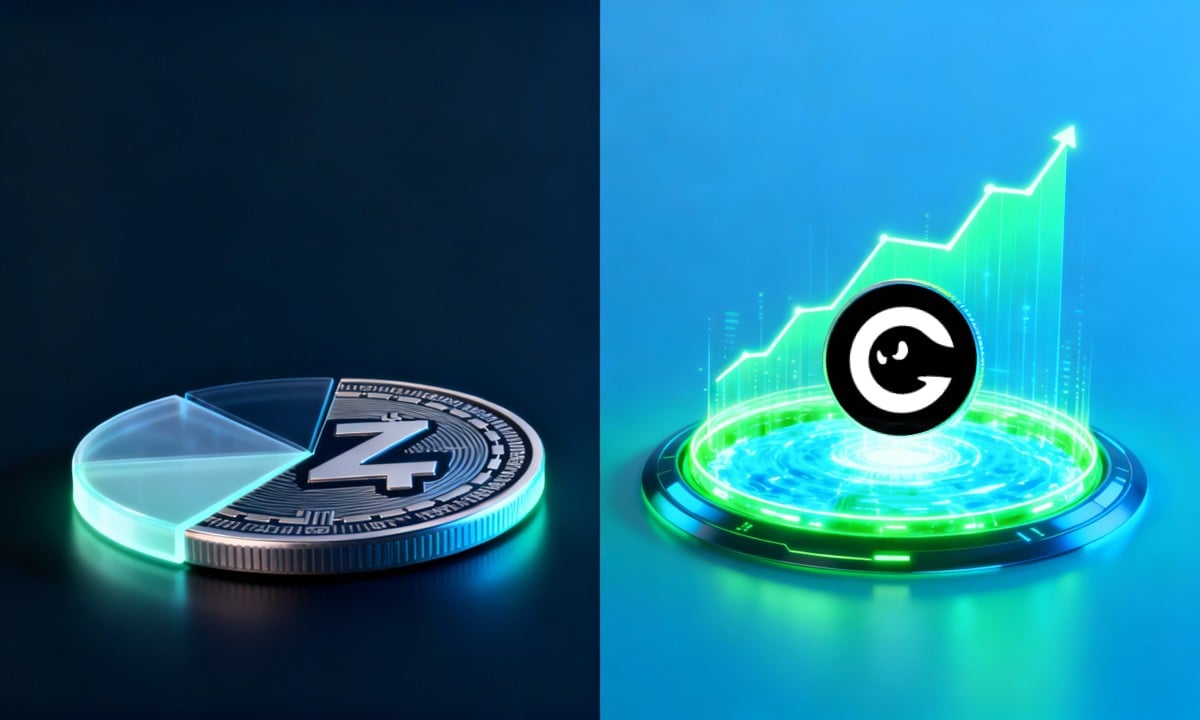
Introduction to the Changing Landscape of Privacy Coins
The cryptocurrency market is witnessing a significant shift as legacy privacy coins, exemplified by ZCash (ZEC), encounter mounting resistance in their price movements. Meanwhile, the rise of newer, more advanced protocols like GhostWare (GHOST) suggests a shift in trader interest and capital allocation.
Price Performance: ZCash Faces a Plateau
ZCash, once one of the pioneering blockchain privacy solutions, has experienced a dramatic price increase since September 2025. With a 700% surge to $730 before retracting to $560-$565, the asset is showing signs of exhaustion in its bull run. This raises a key question: Is ZCash losing its edge in an evolving crypto landscape?
The Shift to GhostWare: A Modern Privacy Protocol
One of the notable competitors to traditional privacy coins is GhostWare, a protocol built on the high-speed Solana blockchain. Unlike ZCash, which operates on a standalone chain, GhostWare integrates seamlessly with Solana’s ecosystem, combining liquidity, scalability, and privacy-enhancing technology. This hybrid approach allows users to anonymize their financial activities while benefiting from Solana’s decentralized applications (dApps) and low fees.
Technical Highlights of GhostWare
GhostWareOS, the underlying technology of GhostWare, uses zero-knowledge proofs (zk-SNARKs) to ensure secure and private transactions. Further anonymization is achieved with a relay network that routes transactions through multiple nodes, masking both financial and physical origins. This innovative stack allows GHOST to push privacy innovation forward without compromising transaction speed or ecosystem usability.
Migration of Capital: Whales Show Confidence in GHOST
Blockchain data reveals that long-term ZCash holders, including significant whales, are rotating their funds into GhostWare. With GHOST’s market cap at $10 million and a trading volume of $2 million, the project offers enticing growth potential compared to ZEC’s multi-billion-dollar valuation. This migration underscores growing confidence in GhostWare among savvy investors.
A Forward-Looking Economic Model
Whereas ZCash relies on mining incentives—often creating downward price pressure due to miners selling their rewards—GhostWare employs a utility-driven tokenomics model. Revenue from privacy services like GhostPay is reinvested into the platform, creating organic demand for the GHOST token. This model positions GHOST as a productive asset within the Solana ecosystem.
Why Privacy Matters in DeFi
As global institutions and retail investors increase their footprint in decentralized finance (DeFi), the demand for privacy tools is growing. GhostWare’s privacy infrastructure aligns with these needs, offering an interoperable, scalable, and secure solution for the next generation of DeFi transactions.
Conclusion: Seizing the GHOST Opportunity
The pivot from legacy privacy coins like ZCash to next-generation infrastructure solutions such as GhostWare represents a turning point in crypto. For investors, this shift offers a timely opportunity to capitalize on the growth of privacy-focused DeFi. At its current price, GHOST is not just an asset—it’s an entry point into the future of privacy-driven blockchain applications.
Recommendation: If you’re interested in exploring privacy coins, check out Coinbase for easy access to top cryptocurrency tokens, including emerging projects like GhostWare.






